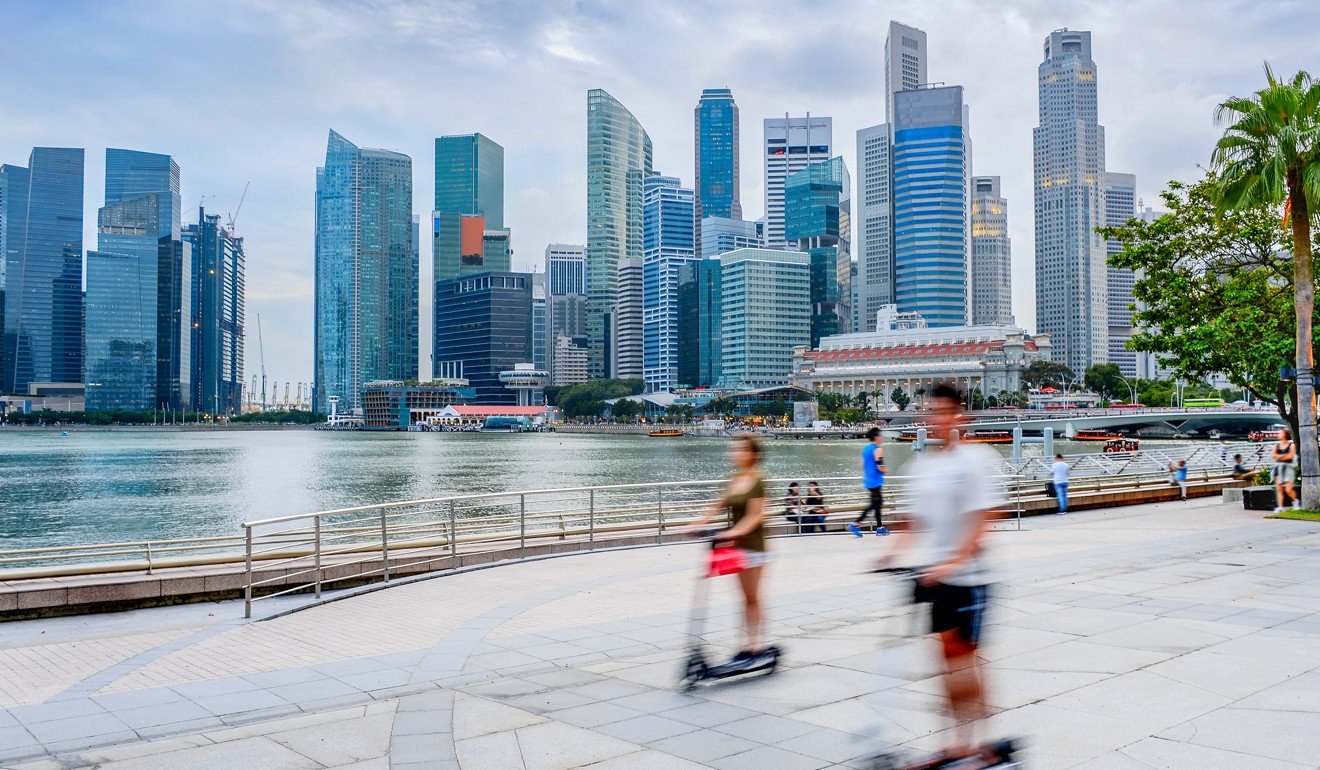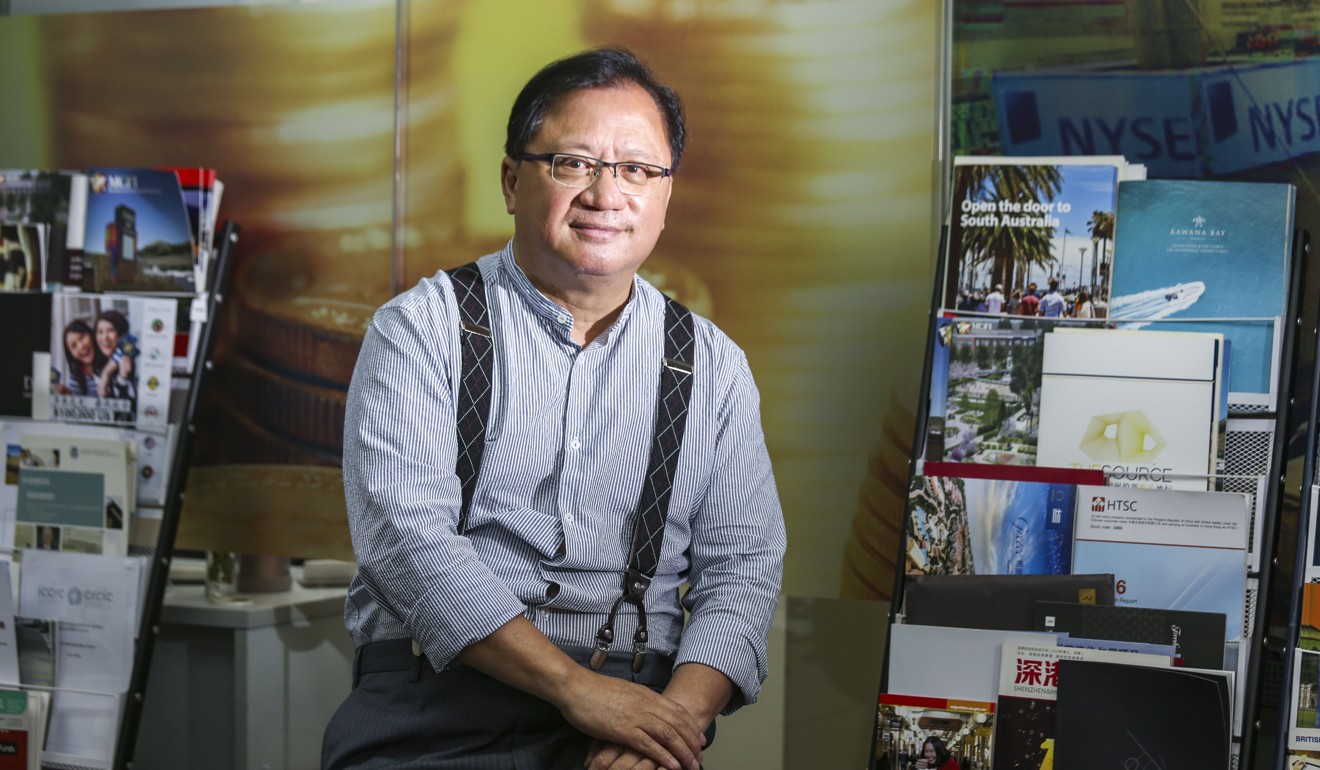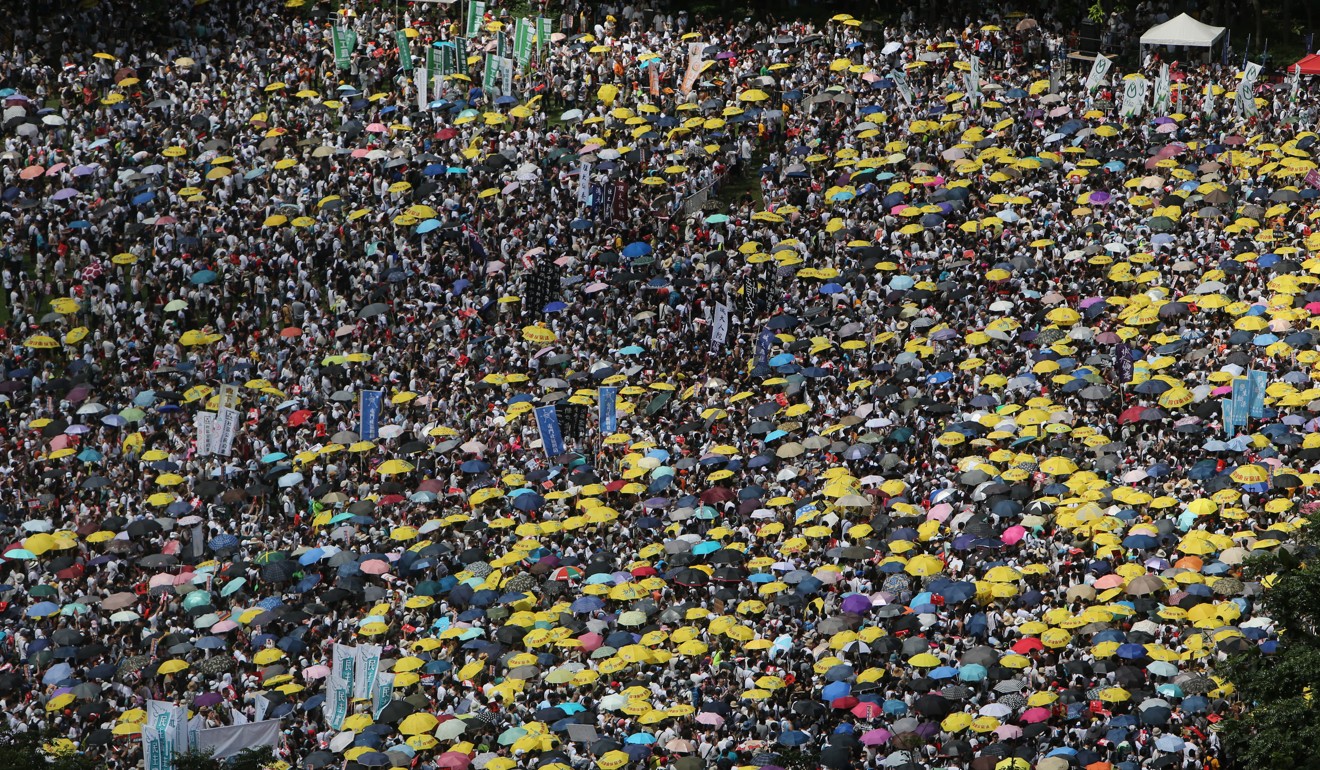Emigrating Hong'kongers seek stability elsewhere, heading to Australia, Canada, Singapore
- Migration agencies report sharp increase in inquiries in recent months, as anti-government protests and street violence grip the city
- As well as usual emigrant destinations, younger people look closer to home, including to Singapore and Malaysia
After watching weeks of anti-government demonstrations, with ugly clashes between police and protesters and no end in sight, IT entrepreneur Wel Sun has decided it is time to act.
The 34-year-old Hongkonger is set on emigrating to Singapore with his wife and two young daughters.
He has done his sums, seen a migration consultant, set aside HK$500,000 (US$64,000) to move and even checked out property prices near the city state’s Changi Airport. He has told his parents he is leaving, and promised to visit often.
“I don’t want to leave the city, because it is my home. But I don’t have other options,” he says. “Hong Kong will only deteriorate.”

Singapore is a top choice for departing Hongkongers.
He chose Singapore for its political and economic stability.
He chose Singapore for its political and economic stability.
Sun is among a growing number of Hongkongers thinking about leaving, or already planning a move.
A survey in June by global market research firm YouGov found that almost half the Hongkongers polled had thought about emigrating. Young people were more inclined to leave than older folk, with two-thirds of those aged 18 to 34 saying they had thought of emigrating.
Migration agencies, which help people file applications to various countries, report a sharp increase in inquiries in recent months, and are struck by the number of younger people keen to move to places in Asia such as Singapore, Taiwan, Thailand and Malaysia.
Protest push factor
According to the Security Bureau, about 7,600 Hongkongers emigrated last year, up from 6,500 in 2017. The numbers leaving annually from 2014 to 2016 ranged between 6,900 and 7,600.
The top three destinations for the past five years were Australia, the United States and Canada. Last year, 2,400 Hong Kong residents moved to Australia, 1,600 moved to the United States and 1,100 headed to Canada.
Most Hongkongers qualify to emigrate by making investments in their new country, being business innovators, finding jobs as skilled workers, or marrying foreigners.
Three Hong Kong-based migration agencies – Midland Immigration Consultancy, John Hu Migration Consulting and Anlex – report an increase in inquiries from Hongkongers in recent weeks. They say Singapore appears to be a top choice, along with Taiwan, Thailand and Malaysia.

“People have become more determined to leave Hong Kong”, says John Hu.
At Midland, emigration inquiries quadrupled from 20 in May to 80 in July. Swing Wong, its head of product development, says a significant share of inquiries were from people in their 20s and 30s, whereas previously most clients were in their 40s and 50s.
Keita Yuen, business development officer at Anlex, notes many young parents among those making inquiries.
John Hu, founder of John Hu Migration Consulting, says inquiries doubled over the past two months and adds: “People have become more determined to leave Hong Kong. In the past, people would ring up for information, but now many say, ‘We want to leave now’ and we give them the application forms to fill.”
People always have various reasons for leaving, but Hu says the ongoing protests have become a significant push factor.
“The political situation right now is more of an accelerator,” he says.
The anti-government protests – sparked by a now-abandoned extradition bill – have rocked Hong Kong since early June. There have been numerous clashes between residents and police, some involving tear gas and rubber bullets, and outbreaks of street violence between protesters and armed gangs.
If more young people are considering emigration, experts say, it is because they expect more from society than older Hongkongers, and feel more frustrated and dissatisfied when reality fails to meet their expectations.
Dr Victor Zheng Wan-tai, assistant director of the Hong Kong Institute of Asia-Pacific Studies at Chinese University, says younger Hongkongers face “downward mobility”, which means they find themselves in a lower social class than the one into which they were born.
“Although they have high educational achievements, they find their work, job advancement and income not very promising,” he says. “They feel disappointed and therefore try to find a way out.”
Adding to the bleak outlook, a government workforce report released in May projects Hong Kong will have 16,300 more postgraduate-level workers than are needed by 2027. A study by policy think tank New Century Forum highlights concerns that degrees are worth less than before, with fresh graduates earning less and settling for low-paid, unskilled jobs.
Third wave of emigration?
Hong Kong had two major waves of emigration in recent decades, the first in the wake of the Tiananmen Square crackdown in Beijing in 1989, the second just before Britain returned the city to China in 1997.
Many predict that the current political crisis could lead to a third exodus.
Hongkonger Sonia Lai, 23, is thinking about moving to Singapore with her Singaporean boyfriend next year after finishing her training in Australia to be a chiropractor.
She was already considering going to Singapore, but the political turmoil in Hong Kong has made her more determined to do so.
“I’m totally disappointed with the government for ignoring the sound of people from all generations,” she says. “I will miss everything in Hong Kong – part of me is still struggling with the decision to emigrate. I love the city; it is my home. But with this government, I see no future.”
She visited Singapore in June and found that people there have a strong sense of belonging. “Singaporeans are satisfied with their lives, and most have no worries about housing,” she says.
A survey of people intending to emigrate, conducted by Chinese University’s Hong Kong Institute of Asia-Pacific Studies last December, shows that the top three push factors are political dispute or social cleavage, overcrowded living conditions, and dissatisfaction with political institutions.
Hong Kong is home to more than 7.4 million people. The average living space per person in the city is 161 sq ft, similar to the size of a car parking space. Housing prices are astronomical.
For many, even if they have the desire to emigrate, it may not be easy for them to do so. As a result, their frustration and dissatisfaction may accumulate, which will affect social stability
When City University’s department of social and behavioural sciences surveyed more than 2,300 people aged 40 and younger in Hong Kong and Singapore in the first half of this year, it found Singaporeans were happier.
Hong Kong respondents scored 6.8 points out of 10 on a “happiness index”, behind Singapore’s 7.48 points. The researchers believe the gap would have been wider if the study had been done in early July, as anti-government protests escalated.
Although Australia, the US and Canada have been the top draws for departing Hongkongers, a tightening of immigration policies has made moving to those places more difficult.
US-bound Hongkongers, for example, tend to apply for the EB-5 visa given to those who invest at least US$500,000 in a business that will employ at least 10 Americans. From November this year, the minimum investment will almost double to US$900,000.

Protesters take to the street to decry the extradition bill in June. Photo:
This helps to explain the rise in interest in Asian destinations, agents say, although some seek new homes that are not too different from Hong Kong.
IT entrepreneur Sun chose Singapore so he would be close to Hong Kong, where he has strong family and business ties. But he is also attracted by the environment, culture and staying in the same time zone.
“Singapore feels a lot like Hong Kong,” he says.
Taiwan has also emerged as a popular destination. According to Taiwan’s immigration department, 1,267 people from Hong Kong and Macau emigrated there last year, almost double the 697 who moved there in 2014.
About 400 Hongkongers immigrated to Taiwan in the first four months of 2019, a 40 per cent jump on the same period a year earlier, statistics show.
While applications to countries like Australia, the US and Canada can take years, migration agents say it takes just six to nine months to secure permanent residency in Taiwan and the investment required is relatively low, at NT$6 million (HK$1.5 million).
Those planning to leave are aware there will be challenges settling into a new environment, including the language barrier and fear of discrimination and hostility from locals.
Sun and Lai say they are aware of Singapore’s restrictions on freedom of speech, but both say stability is more important.
While some experts worry an exodus of young Hongkongers will result in a talent drain, others point out that those who try but fail to leave may end up feeling more discontented.
“For many, even if they have the desire to emigrate, it may not be easy for them to do so. As a result, their frustration and dissatisfaction may accumulate, which will affect social stability,” Zheng says.
Migration agencies note that many Hongkongers who go through the emigration process end up keeping their new passports in reserve while continuing to live in Hong Kong.
Entertainment industry employee Ho, 47, who asked to be identified only by his surname, emigrated with his family to Canada in the 1990s, but returned to Hong Kong after getting Canadian citizenship.
Concerned with the political situation now, he and his wife are preparing to return to Canada.
“Hong Kong is no longer the place we are familiar with,” he says. “Hongkongers can no longer decide their city’s fate.”
No comments:
Post a Comment
Comments always welcome!